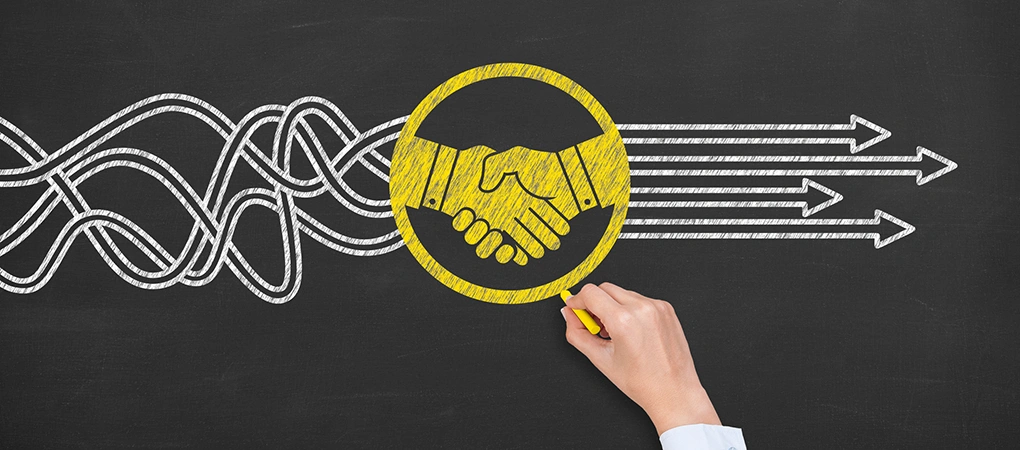How To Overcome Imposter Syndrome
Dan Sullivan

Imposter syndrome is a common ailment in the entrepreneur community. It can induce symptoms of depression, anxiety, self-doubt, and incompetence in people—despite even the most extensive list of accomplishments and experience.
I’d say half of the entrepreneurs with imposter syndrome are actual imposters. I say this jokingly, but there’s some truth to it. It’s the symptom of a “fake it till you make it” approach. The other half of entrepreneurs with imposter syndrome are high achievers who have earned their accolades and position but don’t feel they’ve earned them.
The latter group simply needs a mindset shift.
There are two explanations for the second group of entrepreneurs that we must dissect before we learn how to overcome imposter syndrome.
1. They are living a reality that their background didn’t prepare them for.
Whether it be their economic conditions, humble background, or small-town upbringing, they’re now doing activities and using capabilities that didn’t exist 20 to 30 years ago or weren’t available where they came from. They suddenly live in a new reality that doesn’t feel as real as their old one, thus making them feel like an imposter in their new world. This kind of imposter syndrome comes from a mindset stuck in the past.
2. Once entrepreneurs reach big goals, their future feels more normal than they expected.
Their accomplishment didn’t come with the immediate emotional transformation they imagined as part of their future. An extreme example of this phenomenon is when the first astronauts came back from walking on the moon and had nervous breakdowns because everything back home felt so painfully … normal. They thought, “Aren’t I supposed to feel different now? Is this it?” They suffered from imposter syndrome because the experience had fundamentally changed them on the inside, but their experience back on planet Earth didn’t feel as they expected it to.
The power of presence.
Entrepreneurs suffering from imposter syndrome compare the present with the past or compare their current self to a perceived future self—but are always disappointed when they get there. Peggy Lee describes this feeling in a song where she sings about various stages and changes in her life. After each of the stages, she’s left with the same feeling. Throughout, she sings, “Is that all there is?”
Presence is the most challenging skill to cultivate.
To a certain extent, the way you live each day creates a structure and process for future days. Mindset drives behavior, and behavior drives habits. So, imposter syndrome is essentially a mindset that is still in the past or expects a future emotional transformation that you’ll never reach because the future always feels normal once you get there.
If you want to know how to overcome imposter syndrome, start by practicing a present-focused mindset to drive conscious behavior. Then, if the behavior satisfies the requirements of the mindset you wish to cultivate, make it automatic through habit.
The future is always normal.
The way you think about today and the future is unique to you. The criteria, the experiences, and the capabilities are all uniquely yours. Interestingly, with and without imposter syndrome, there’s a separation between being an individual and feeling like we belong in larger social networks. There’s a sense—a hope—that in the future, we’ll genuinely feel connected to everybody else, to humanity, in a more significant way than we do today.
This is a nice thought. After all, why wouldn’t we strive to feel more connected to others?
However, this thought is problematic in people with imposter syndrome because they’re using this hope, this sense, as a standard of measurement for the future. The problem is, you’re never going to feel like you’ve arrived at that place of connectivity and emotional transformation. You’ll never feel like you’re “there” because it happens and normalizes along the way. Besides, how can you even measure that?
You’re bound to suffer from imposter syndrome thinking this way.
We can’t predict the future, and our feelings of belonging and true identity shouldn’t rely on how we expect to feel at a later point in time when we reach a particular goal. It shouldn’t draw on our past identity and history because we’re constantly evolving and growing from our past selves. At least, that’s what we’d hope.
The future is normal because the steps you take to get to that future become normal. Don’t expect the future to bring on an emotional transformation that gives you sudden permission to belong and eradicates your imposter syndrome. That mindset is one you choose to cultivate now, and overcoming imposter syndrome is a choice you make. It won’t go away on its own.
How to overcome imposter syndrome.
To overcome imposter syndrome, you have two things to play with: your brain (your inside operating system) and your mind (your ability to access other people’s brains).
Use your brain to constantly make sense of your experiences in order to feel confident about tomorrow. Then, use your mind to benefit from other people’s brains, thoughts, and strategies so you can learn without having to go through the same thing.
When you learn how to overcome imposter syndrome, you’ll be able to confidently pursue continual and lasting growth while still feeling genuine and having integrity. So, use your mind to keep expanding the quality and quantity of other brains you access. These conversations are exciting and expansive and will teach you how to shift your mindset in the present to avoid and overcome imposter syndrome.
Pursuing ongoing growth and transformation is a worthwhile endeavor no matter where you are in life or business. Discover the 10 Laws of Lifetime Growth and learn how to constantly grow and improve with your free copy of The Strategic Coach Approach To Lifetime Growth.





